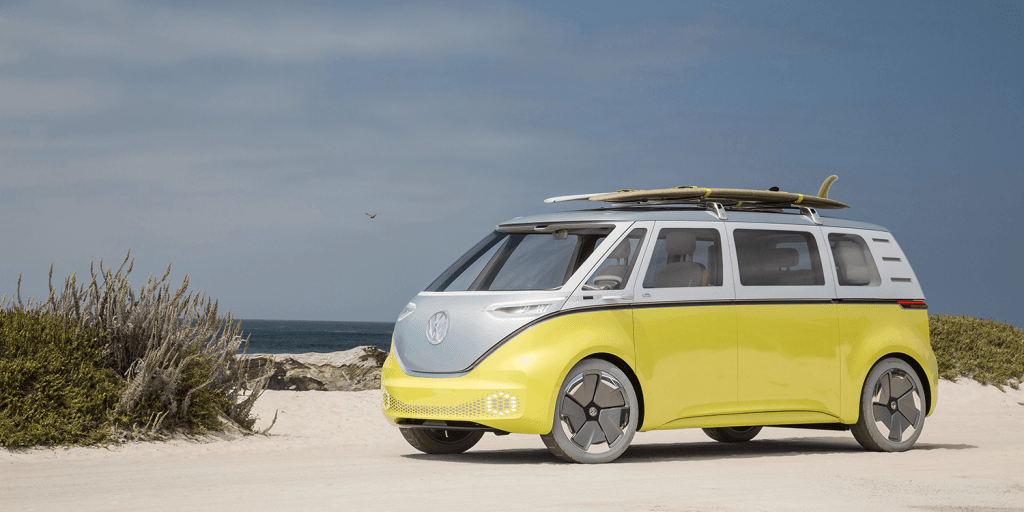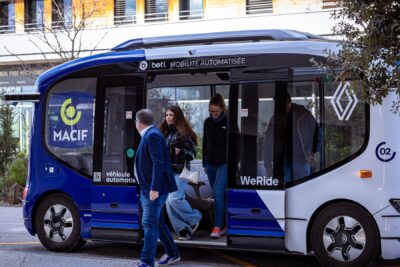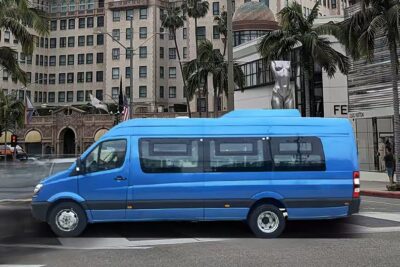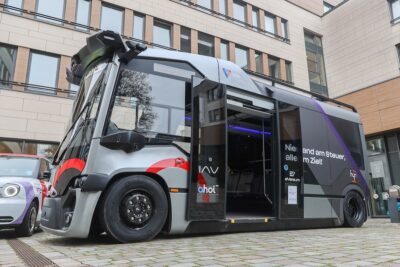Qatar: VW to launch self-driving fleet with e-Bullis (ID. Buzz)
VW and the Qatar Investment Authority (QIA) plan to set up a fleet of autonomous buses for the 2022 FIFA World Cup in Doha. Most interestingly, the ‘Project Qatar Mobility’ includes 35 electric vans, the long-expected ID. Buzz, all self-driving.
The project aims to install a “ground-breaking autonomous transport project and transform the future of urban mobility – even beyond 2022,” says the press release. The Volkswagen Group also describes the initiative as a “landmark project” that will create a “holistic ecosystem for autonomous driving, including the creation of an appropriate legal framework, smart city infrastructure and transfer of knowledge”.
To make this happen, a total of four VW subsidiaries are involved in Qatar: Volkswagen Commercial Vehicles, Scania, Moia, and AID Autonomous Intelligent Driving based in Munich. Moia’s app, which has been tested in Hamburg, among other places, is to be used, for example, to book the e-shuttles.
Volkswagen Commercial Vehicles (VWCV) is responsible within the Volkswagen Group for autonomous driving, mobility as a service and transport as a service. Now VWCV is also to introduce the small (camper van). In Qatar, 35 ID. Buzz AD (for Autonomous Drive) will serve as electric shuttles that can carry up to four passengers on partially fixed routes in the Westbay area. Customers will likely rejoice in seeing the old classic, also known as Bulli, electrified as ID. Buzz.
“Utilising the Bulli of tomorrow with the autonomous driving system currently being developed by AID, adding the intelligent ride pooling from MOIA and enabling it to be booked via an app – thus beginning the future of urban transport: CO2 neutral mobility combined with SDS technology for maximum efficiency and safety,” says VWN-CHef Thomas Sedran. “VWN will become an integrated mobility provider. He added that autonomous driving is the “key issue in the transformation of our core business”.
Scania will take care to transport larger groups as part of its high-tech bus project. The exact type is not mentioned in the press release. For Scania, “with regards to people transport, a higher degree of sharing is also important, and through advances in autonomous transport, it will be simpler to introduce more flexibility in shared people transport,” says Henrik Henriksson, President and CEO of Scania.
The vehicles will be autonomous at Level 4, so they will be fully automated and autonomous, but there will still be a driver on board who can intervene and override the driving functions at any time. VW CEO Herbert Diess said on the occasion of the signing of the agreement that the project would also serve to collect “real-world learnings” and integrate them into the roadmap for autonomous driving.
QIA is the third-largest shareholder in Volkswagen after the Porsche and Piech families and the State of Lower Saxony and also has two representatives on the Supervisory Board. In the Group’s press release, QIA is described as a “long-term investor” that supports the continuous growth of the company, especially in electrification.
For ‘Project Qatar Mobility’ closed testing of the shuttle electric vehicles and buses is expected to begin in 2020 and trials will start as early as 2021, according to Volkswagen. The project will go live by the end of 2022.





0 Comments